The American Association of Equine Practitioners or AAEP has divided equine vaccinations into two categories, Core and Risk Based. Core vaccinations are for all horses regardless of where they live or what they do.
Do You Know What The Core Vaccinations Are?
Take a minute and try to name them….. 🤔
The Core vaccinations on the AAEP list are:
- Eastern & Western Equine Encephalomyelitis
- Rabies
- Tetanus
- West Nile Virus
How many did you get right?
The second category is Risk Based.
How would you define that? 🤔
The Risked Based vaccinations on the AAEP list are:
- Anthrax
- Botulism
- Equine Herpes Virus (Rhinopneumonitis)
- Equine Influenza
- Equine Viral Arteritis (EVA)
- Leptospirosis
- Rotaviral Diarrhea
- Potomac Horse Fever
- Snake Bite
- Strangles
- Venezuelan Equine Encephalomyelitis
Risk Based can depend on many things. Where do you live? Are your horses exposed to other horses through travel? Are there outbreaks in your area? Basically, some horses are at a higher RISK of getting some diseases than others.
For those of us that go to horse shows, you might have assumed that Flu/Rhino would be listed as a core vaccination. It is a requirement by the USEF in order to show (rule GR 845), and the FEI has a similar rule requiring a Flu vaccination (articles 1002 and 1003).
The reason that Flu/Rhino is not considered a Core vaccination goes back to the definitions. Not all horses show, travel or are exposed to horses that do. Those who do have that lifestyle are at RISK and therefore should be vaccinated. Sometimes they even are required to be vaccinated.
Vaccinations in Different Parts of the U.S.
I thought it would be interesting to reach out to people I know in different areas of the country, with different situations, large barns and small, to see what their vaccination program is.
Johanna in Louisiana
Johanna in Louisiana has one horse she keeps at home. Her neighbor has 10 horses, and they can sometimes touch noses with her horse. She often trailers her horse to different places to ride with others. She said the mosquitoes are BAD in her area, and some years they don’t even go away in the “winter “ they get.
Johanna’s vaccination program is:
Yearly
- Rabies
- Flu/Rhino
- EWT (Eastern,Western, Tetanus)
- West Nile
If the horses are showing, Johanna does a second Flu/Rhino vaccination in the fall.
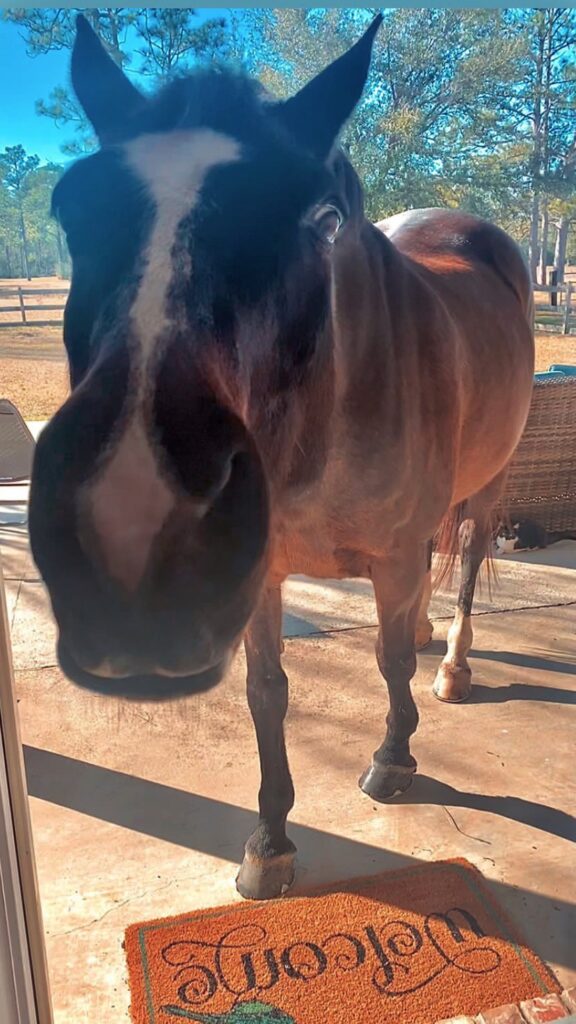
Elle in Nevada
Elle is the barn manager for Maplewood Stables in Reno, NV. They have 57 horses on the property. Some are young horses that stay at home, some are show horses that often travel to Arizona and California. It’s not unusual for outside horses to ship in for lessons or clinics.
Elle’s vaccination program is:
Spring
- EWT (Eastern, Western, Tetanus) West Nile
- Flu/Rhino
- Rabies
Fall
- Flu/Rhino
Maplewood’s veterinarian, Chrysann Collatos of High Desert Equine, told me that she has very strong criteria when she sets up her vaccination programs. In the area she covers, she has clients with very different needs. With each client, she has to consider cost and vaccine efficacy/safety vs. the risk of getting the disease.
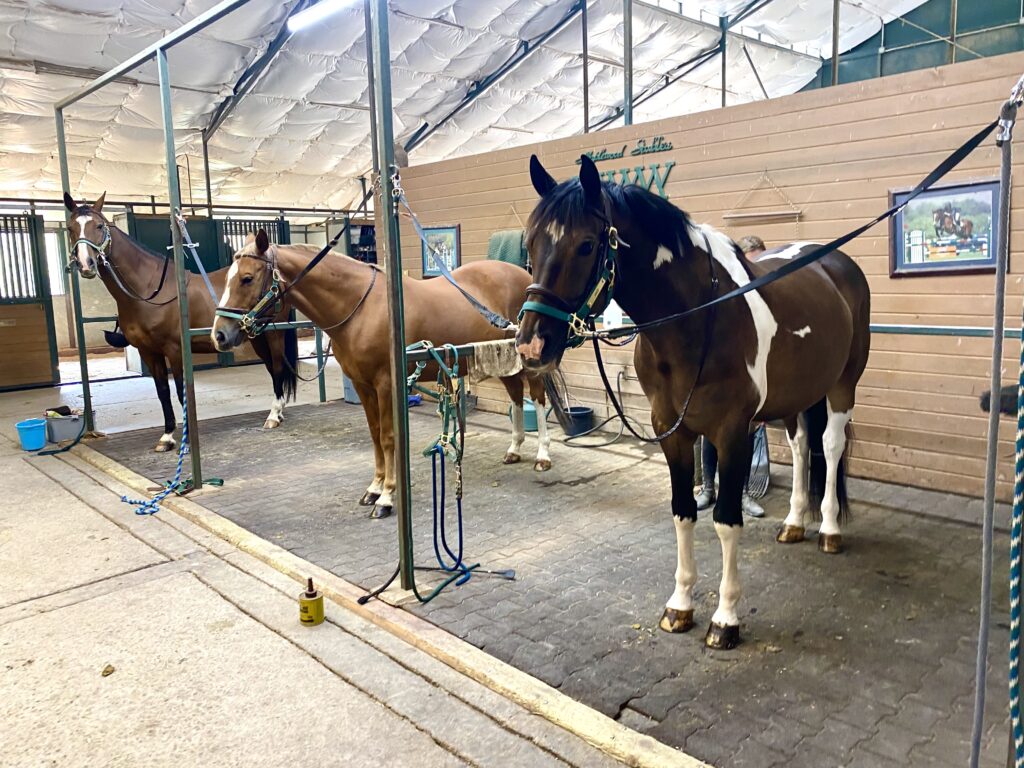
Denise in Vermont
Denise lives in the Northeast Kingdom in Vermont (think remote), and has two rescue horses on her small farm. They only leave the property to go on trail rides and do not come in contact with other horses.
Denise’s vaccination program:
Spring
- Rabies
- West Nile
- Potomac Horse Fever
- EWT (Eastern Western Tetanus)
Denise explained: “I split them up so they don’t get sore necks and too many vaccinations at once. My vet uses Eastern/Western Encephalitis and Tetanus as a combination vaccine. All the others are individual, so rather than give all four vaccines in one day, we split them up into two one day and two another, about one week apart.”
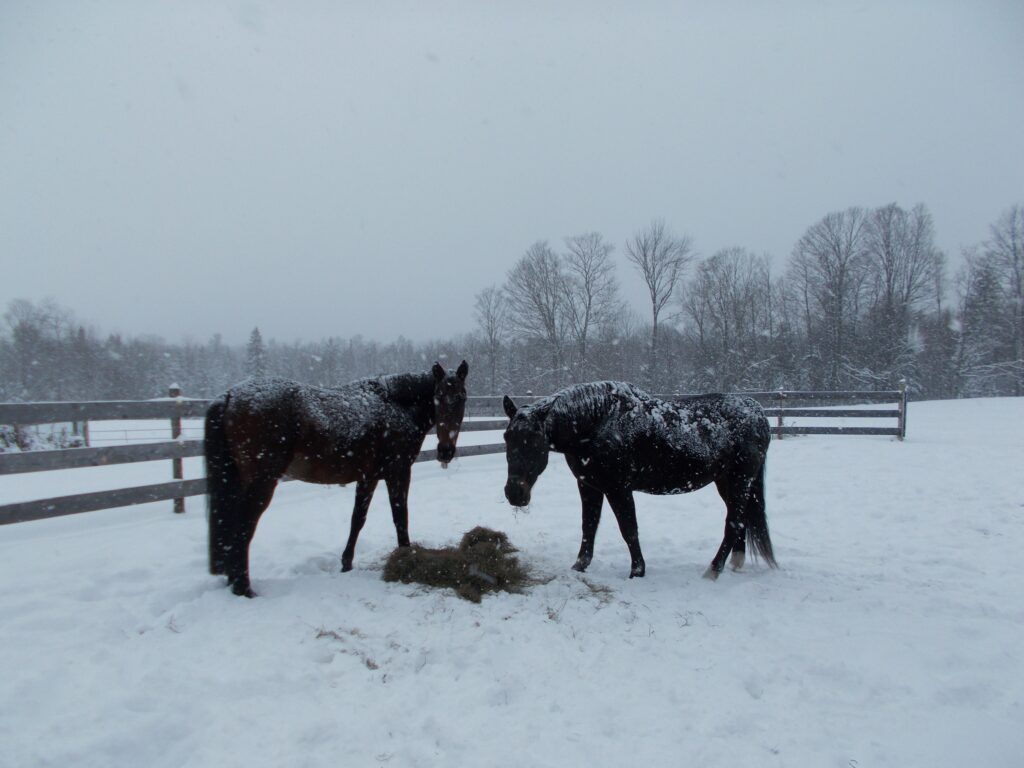
Lake Erie College in Ohio
Lake Erie College in Ohio has 63 horses at the moment. Some horses in their program don’t travel, but many do for shows and intercollegiate competitions. The college also hosts events at their home facility.
Lake Erie College’s vaccination program:
March
- Prestige 5 (A combination of these 5 vaccines: Flu, Rhino, EWT, West Nile, Rabies)
October
- Flu/Rhino
Mary Pardee, Director of Riding added: “We do a mandatory two week quarantine for any horse entering the property, along with twice daily temps. This is even if they leave for a show and come back.”
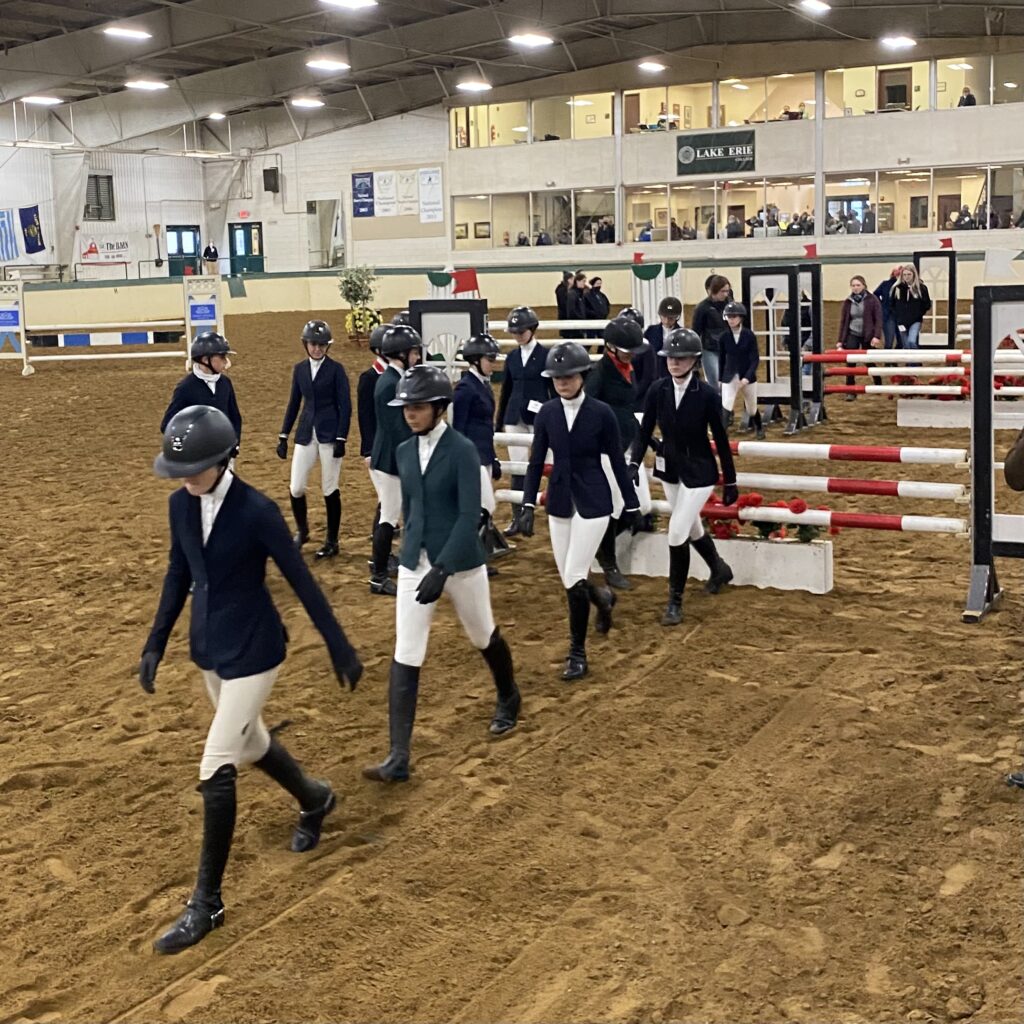
It is important to work with your vet to create the best plan for your horses. I recommend keeping good records, whether it’s a binder or an online app. With show horses, keeping your horses up to date with their vaccinations can be challenging, especially with a busy show schedule. You have to be organized, plan ahead and make it a priority.
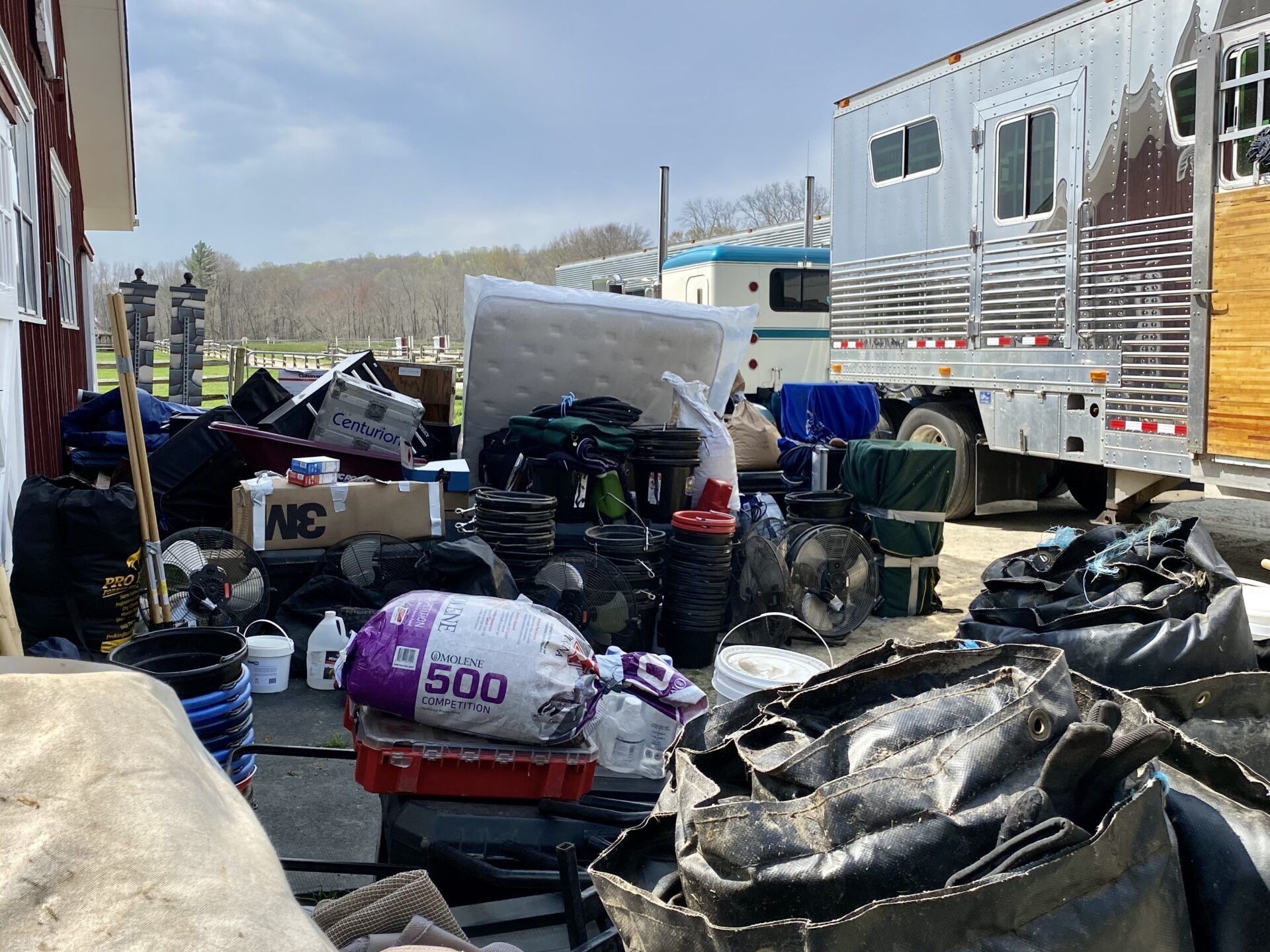
If you want to learn more about vaccinations for your horse, go to the Vaccination Guidelines of the AAEP.
Have questions? Drop them below in the comments!
I’ve been a lifelong equestrian and am still an active professional in the industry. I split my time between Wellington FL, Vermont, and Colorado. I’ve had the opportunity to work, study, and travel with some of the top barns in the United States and Europe. I’ve always valued horsemanship and am grateful for the experience I’ve gained working with some of the best in our sport – riders, trainers, vets, blacksmiths, and fellow grooms.
Since 2013, I’ve been involved with the USHJA Emerging Athletes Program as a stable manager and a member of the USHJA EAP Committee. I hope that as an EAP stable manager, and now as a contributor for Horse Grooms, I can pass along as much knowledge as possible, not only to the next generation of equestrians, but to every horse-loving person who is open to learning.
You can follow me on Instagram @buckets_to_brushes.
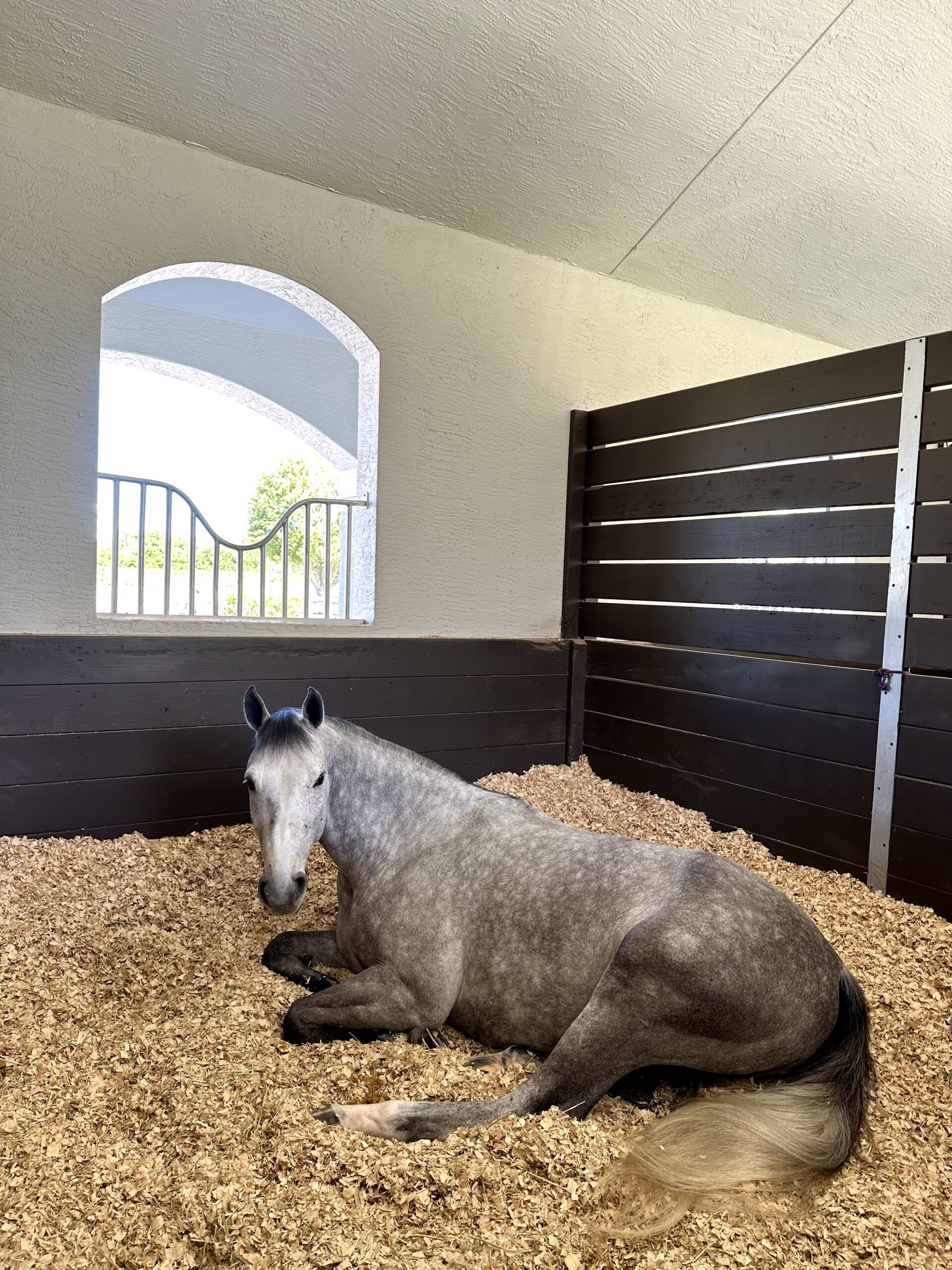
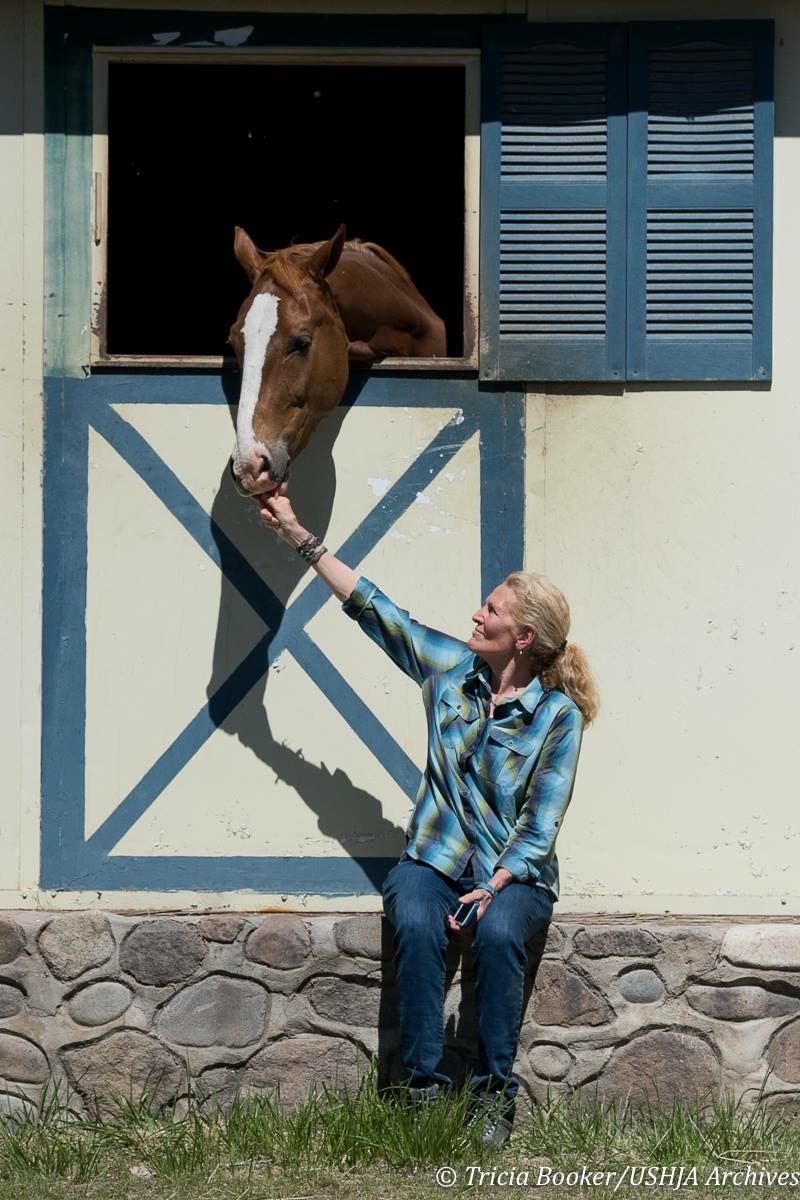

What is your opinion/recommendation on Strangles?
The short answer to your question is to talk to your vet about this. Strangles is a risk based vaccination and your vet can determine if the benefits outweigh the risks.
If you are a curious person like I am, you can also search online for more information . I am cautious about believing everything I read, but the AAEP is a good starting point. I recommend – Strangles: A Contagious Disease and also STRANGLES / AAEP. I also really like the website thehorse.com They have great articles that are smart and relevant without being too technical . Look up -Understanding Strangles in Horses.